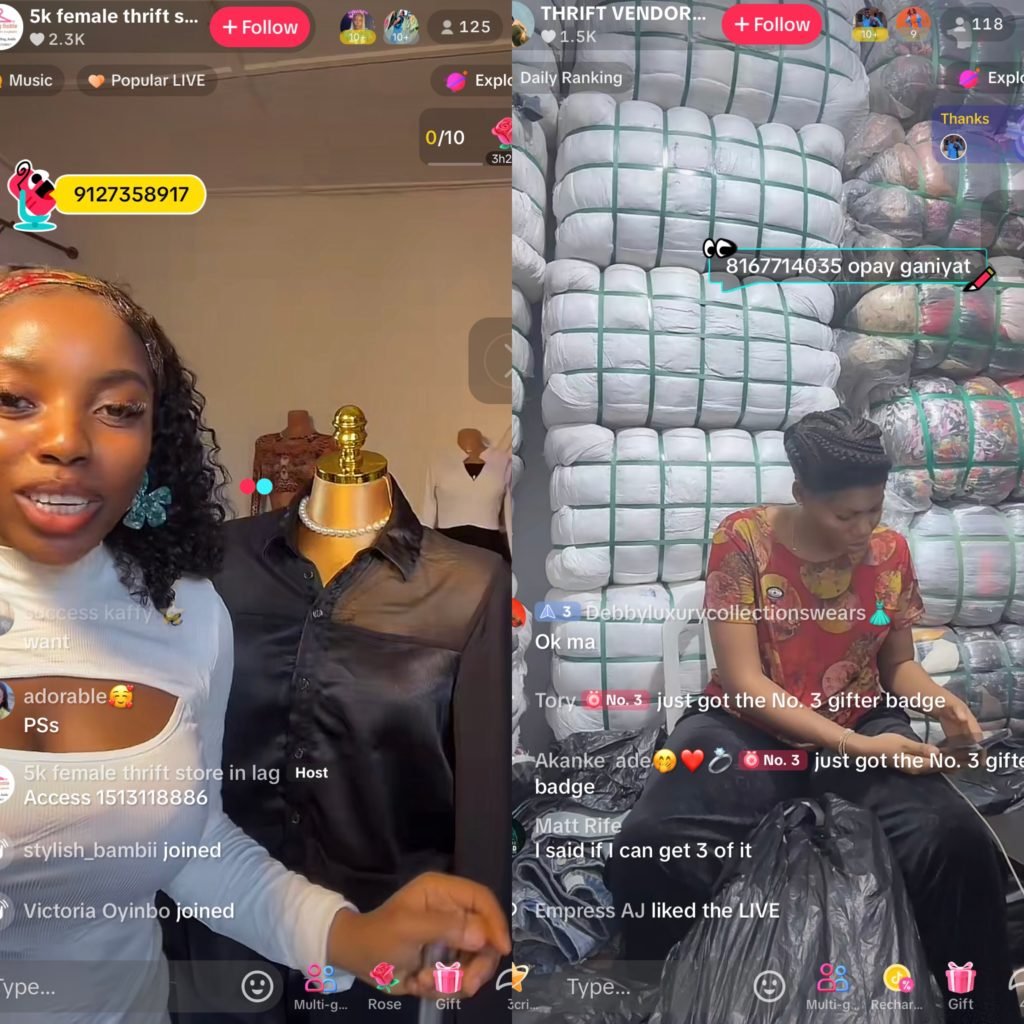Jude Okafor, a trader specializing in menswear, regularly conducts live selling sessions on TikTok to showcase a variety of new and thrifted jeans to his audience. Prior to each live session, Okafor posts reminders to notify his followers about the upcoming sale. During the live stream, which can last up to several hours, Okafor displays jeans to the camera, shares details about prices, features, and quality, providing a dynamic experience that static images or text descriptions cannot match.
His audience, consisting of around 200 viewers, actively bids on items in real-time. Once a price is agreed upon, buyers make payments to the displayed account details and confirm receipt through direct messages. This interactive selling process mirrors the vibrant atmosphere of a bustling market, where traders engage with buyers to strike deals.
Okafor expressed gratitude for social media platforms like TikTok, emphasizing their significance as essential sales channels for small business owners. His success story reflects a broader trend where live sales on TikTok are increasingly popular among small businesses aiming to enhance sales and raise brand awareness. This trend is notable despite the absence of TikTok Shop in African countries, which allows users to purchase directly through the platform.
The growth of social commerce, exemplified by live sales on TikTok, has become a global phenomenon. Platforms like TikTok offer cost-effective alternatives for small businesses compared to traditional commerce setups, reducing overhead costs significantly. This affordability is especially appealing to entrepreneurs navigating an unstable economy and high unemployment rates.
Although live sales on TikTok lack the convenience features of traditional e-commerce platforms like Jumia and Konga, such as delivery tracking and refund policies, businesses are adapting to the changing landscape. By leveraging the engaging nature of TikTok live streams, entrepreneurs like Maryam Musa and Koforowola Adedeji have found success in reaching customers and driving sales. Charles Udeozor highlights the appeal of live selling on TikTok, emphasizing the empowerment and control it offers compared to traditional e-commerce platforms.
As social commerce continues to evolve, traditional e-commerce players are also integrating social elements into their models to remain competitive. This shift underscores the importance of partnerships with social commerce sellers and leveraging community trust to enhance customer engagement and drive sales.
In conclusion, the current landscape of e-commerce and social commerce is promising, with platforms like TikTok providing visibility and opportunities for businesses to thrive. Despite the absence of TikTok Shop in Nigeria, many entrepreneurs find value in conducting live sales on the platform due to the unique visibility and engagement it offers.














Leave a Reply